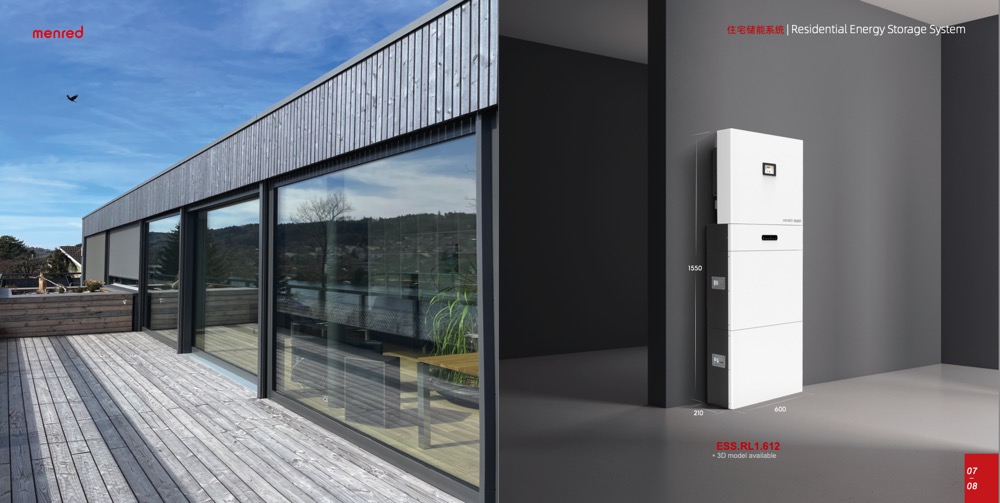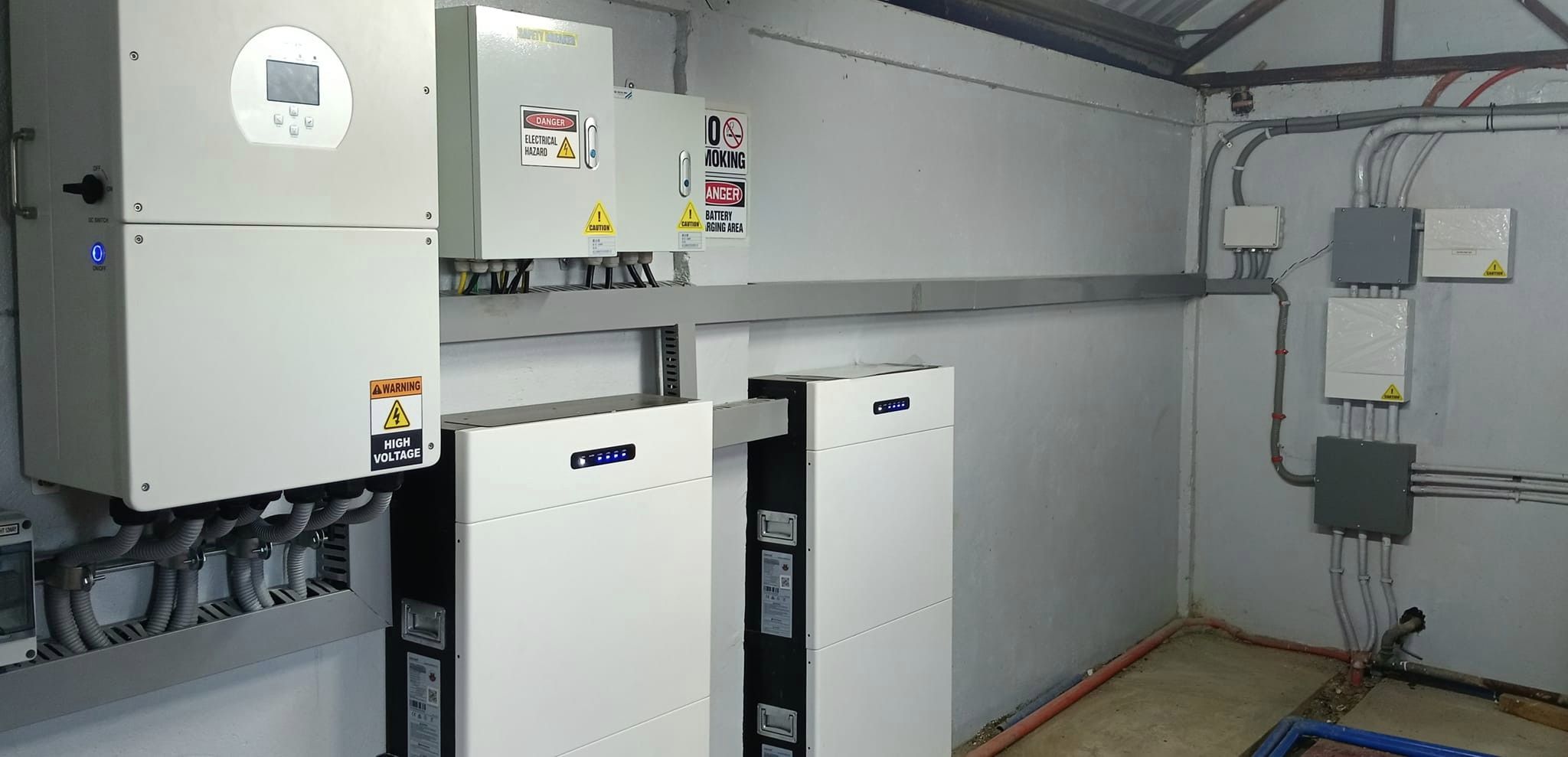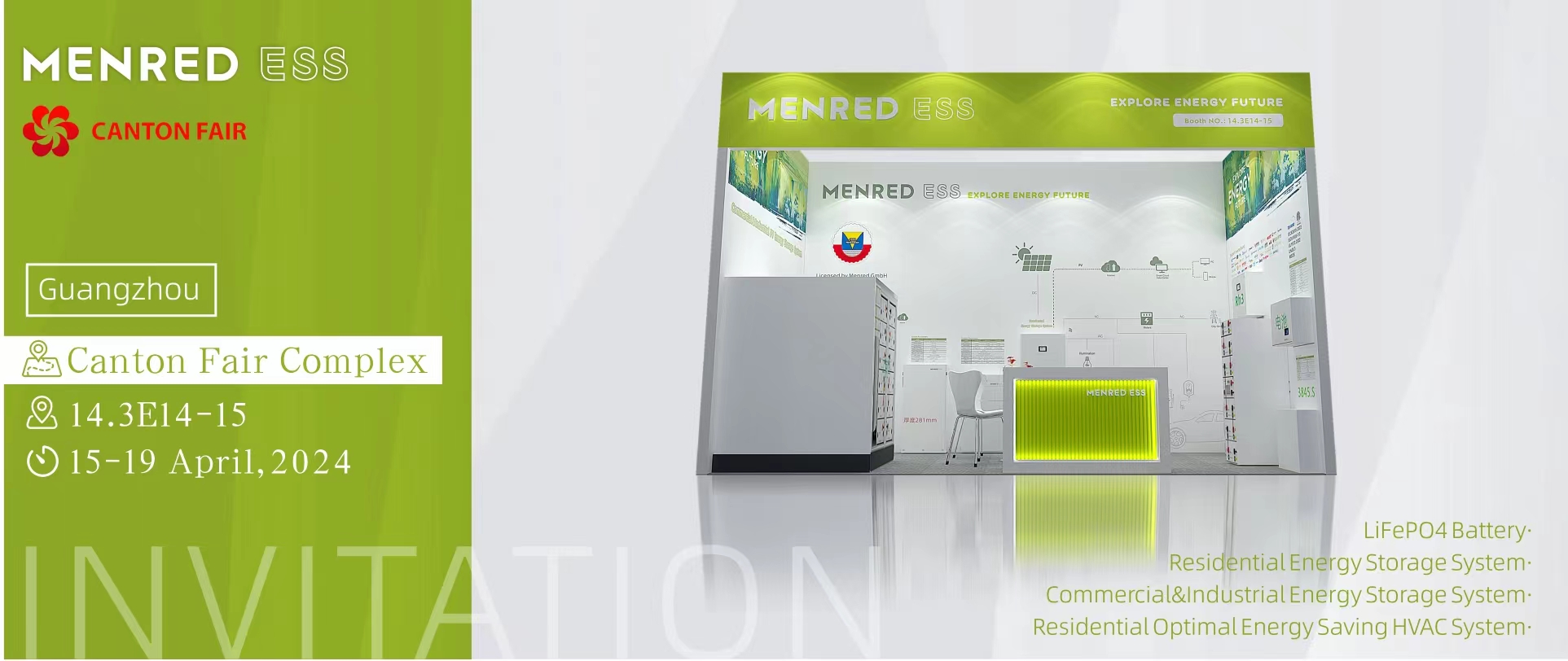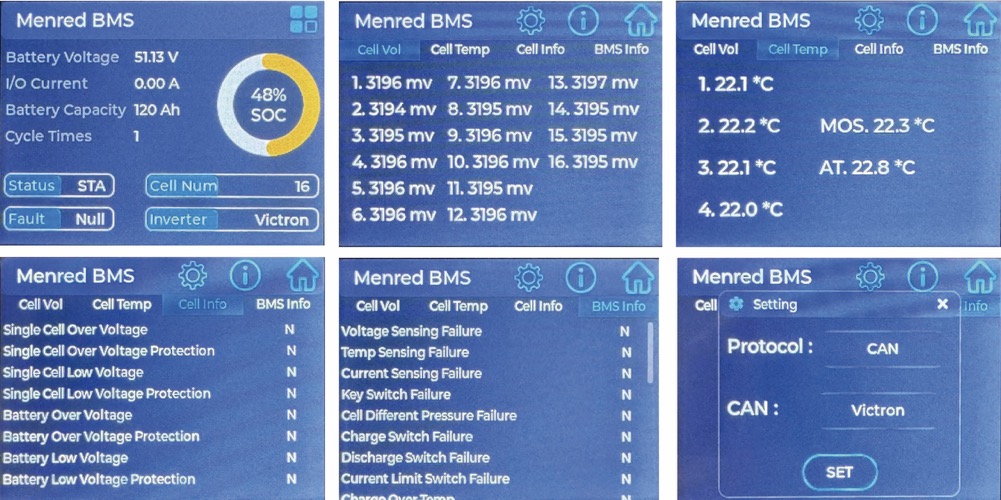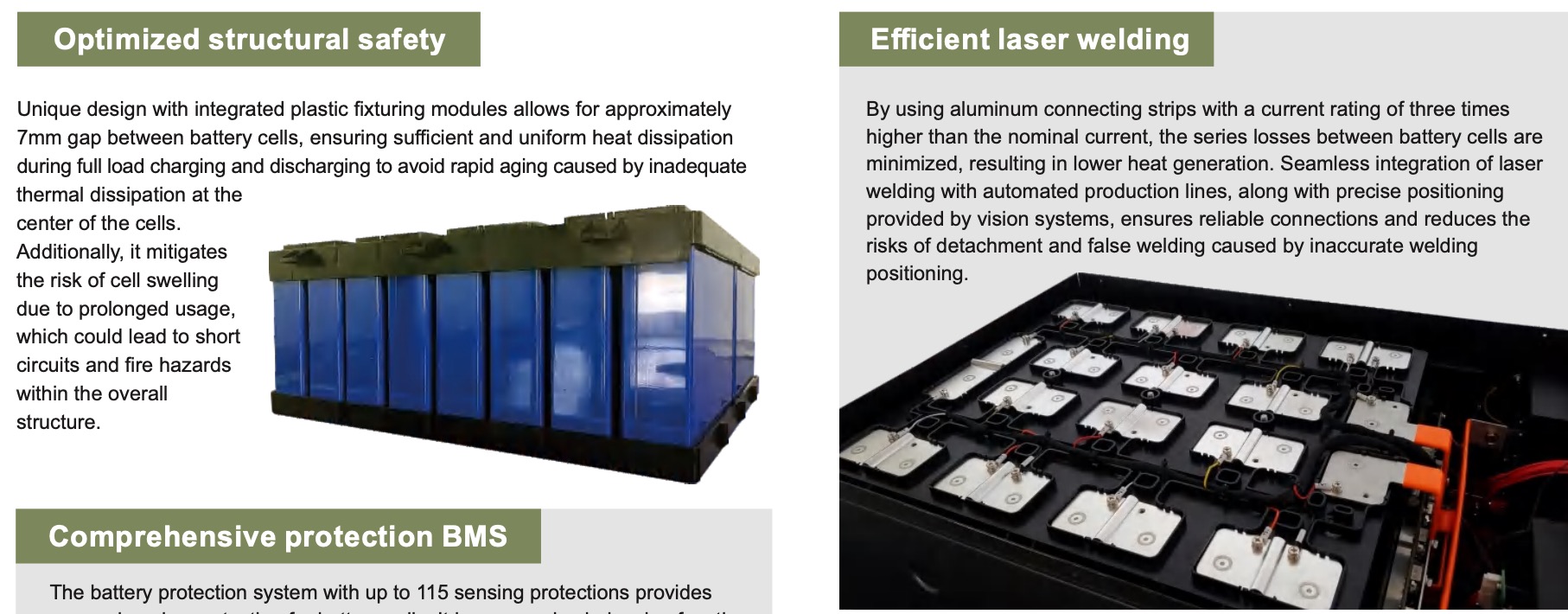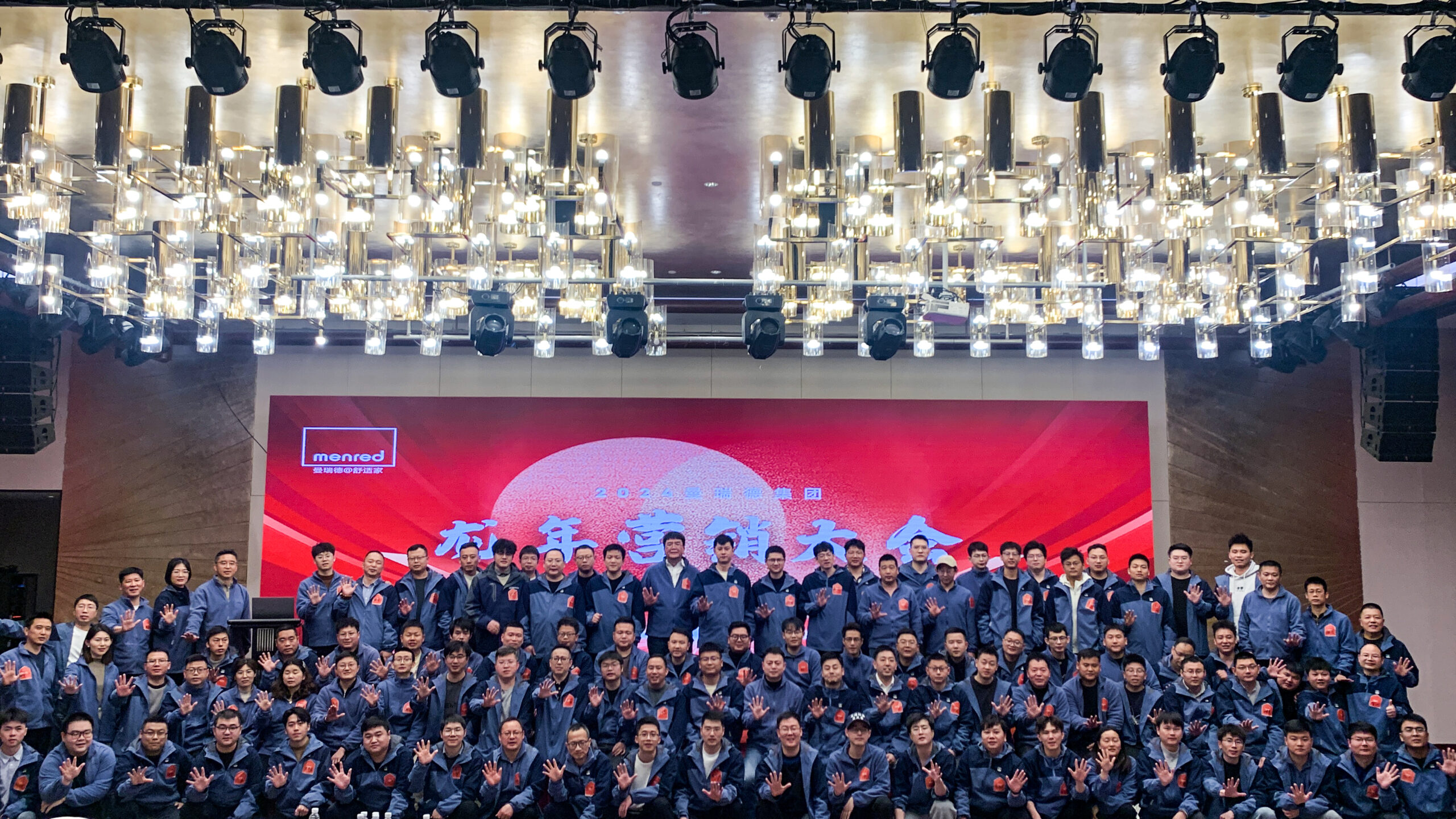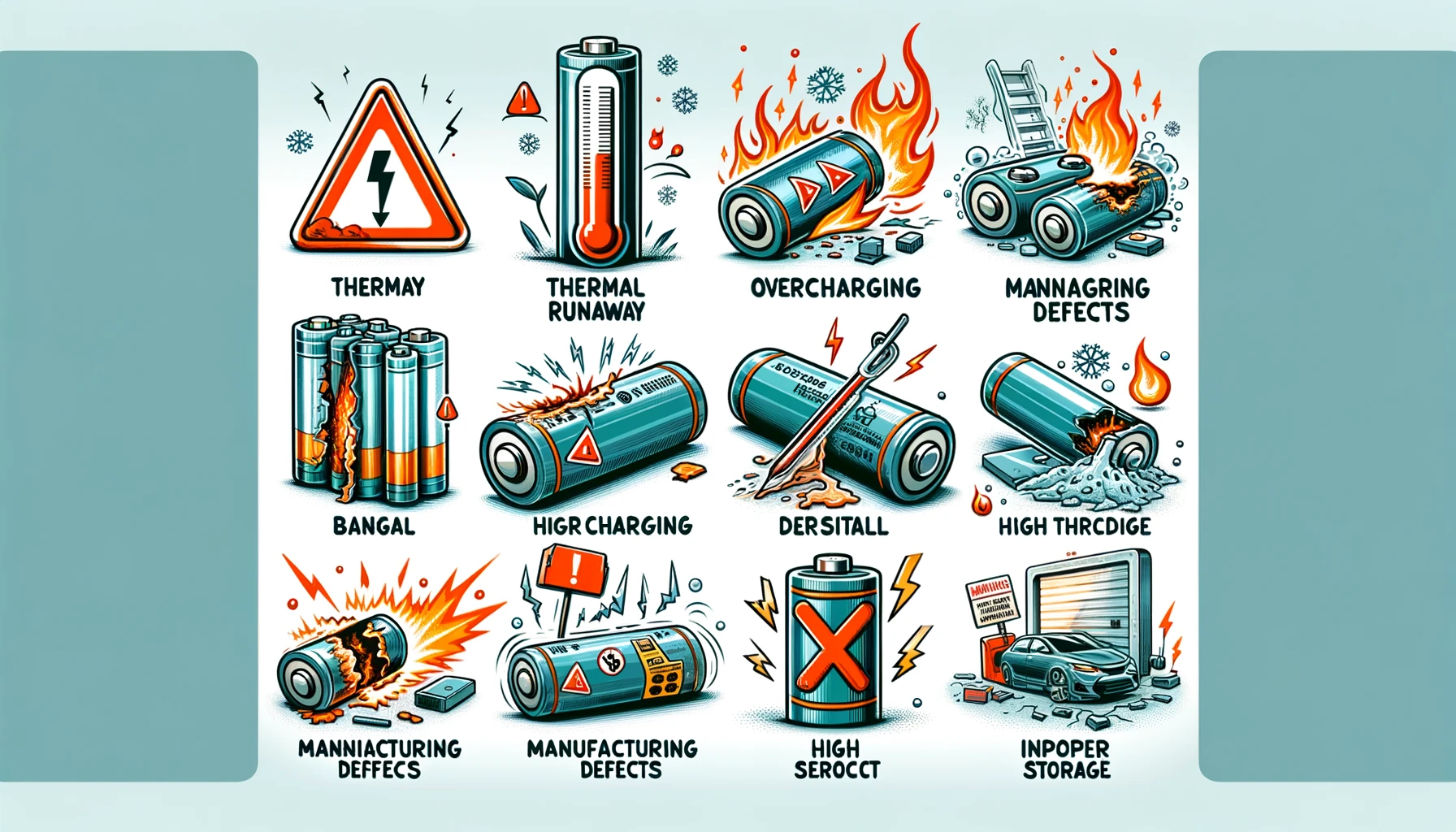A photovoltaic residential energy storage system is a system that converts solar energy into electrical energy and stores it for later use at night or when weather conditions are not favorable. It consists of batteries, a BMS control system, an inverter, and an EMS system, among others, and provides a reliable and efficient power supply in residential settings. With the promotion of energy transformation and the increasing demand for clean energy, the application of residential energy storage systems in households is becoming increasingly popular.
The main component of a residential energy storage system is the battery, and the most widely used battery on the market is the lithium iron phosphate (LiFePO4) battery. This battery has high energy density, long service life, high efficiency, and other features, making it particularly suitable for use in residential energy storage systems. The residential energy storage system also includes components such as the BMS system, inverter, and EMS system. The BMS system monitors and manages the battery, while the inverter converts the stored DC electricity into AC electricity for household use. The inverter can operate in various modes, and if your photovoltaic power generation system exceeds the load power and the battery is already fully charged, it can be connected to the grid to sell excess electricity to the national grid. The EMS system is the management system for the entire residential energy storage system.
Residential energy storage systems have many advantages. Firstly, they can help provide backup power to households during power outages or adverse weather conditions, thereby improving household safety and quality of life. Secondly, residential energy storage systems can also help households save on electricity bills by storing excess electricity generated during peak periods of solar power generation in the battery and releasing it during peak demand periods, avoiding the need to purchase electricity during high-price periods, thus reducing household electricity costs. Finally, residential energy storage systems can also reduce dependence on traditional energy sources, contributing to environmental protection and sustainable development.
It is worth mentioning that the cost of residential energy storage systems is gradually decreasing, especially with the continuous progress of technology and the expansion of the market. The price of storage systems is also gradually decreasing, making it more affordable for more households to enjoy their benefits. In addition, governments are also encouraging households to adopt renewable energy and residential energy storage systems, providing some subsidy policies and tax incentives, making the market prospects for residential energy storage systems even broader.
Overall, residential energy storage systems are a powerful technology that can provide many benefits to households. They can improve the reliability and stability of household power supply, reduce household energy bills, and reduce dependence on the public grid. Although their costs may be relatively high, they can provide long-term benefits to households and help protect our environment. Menred Group innovates for building carbon neutrality.

